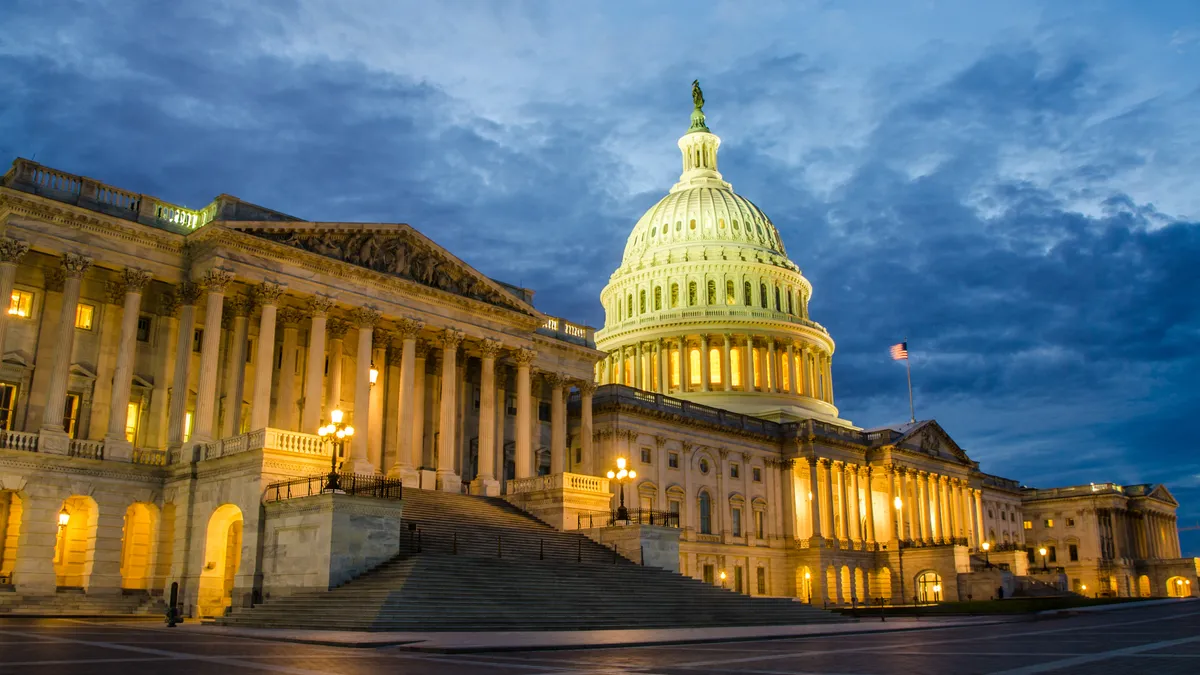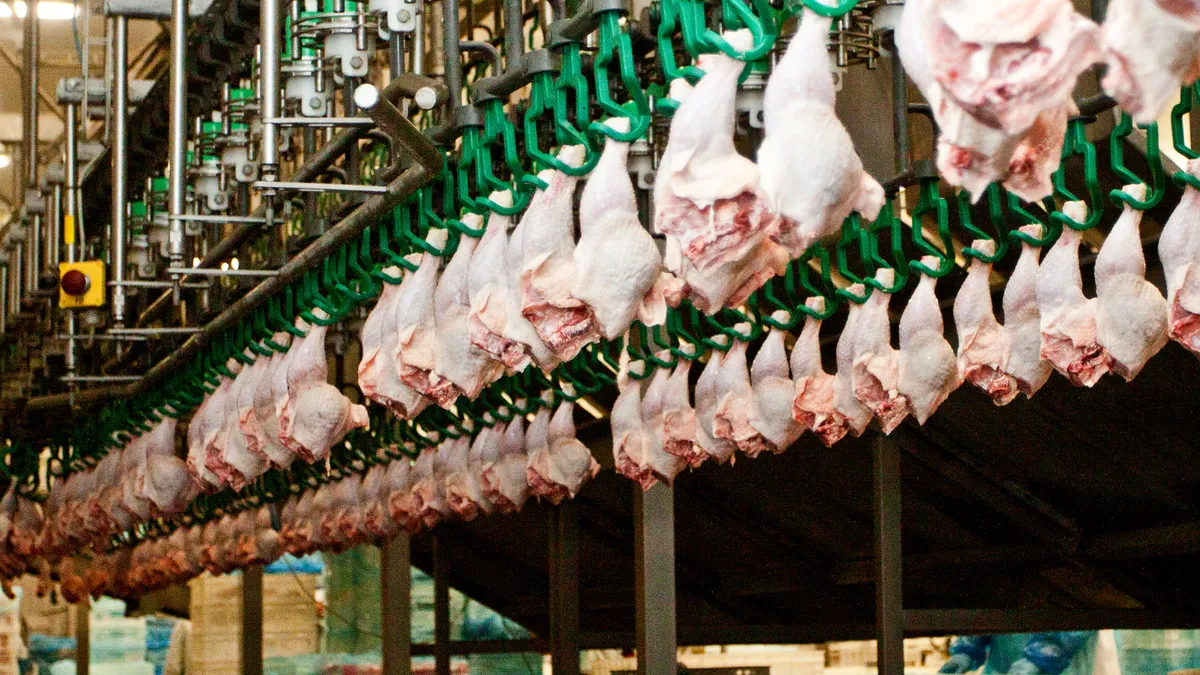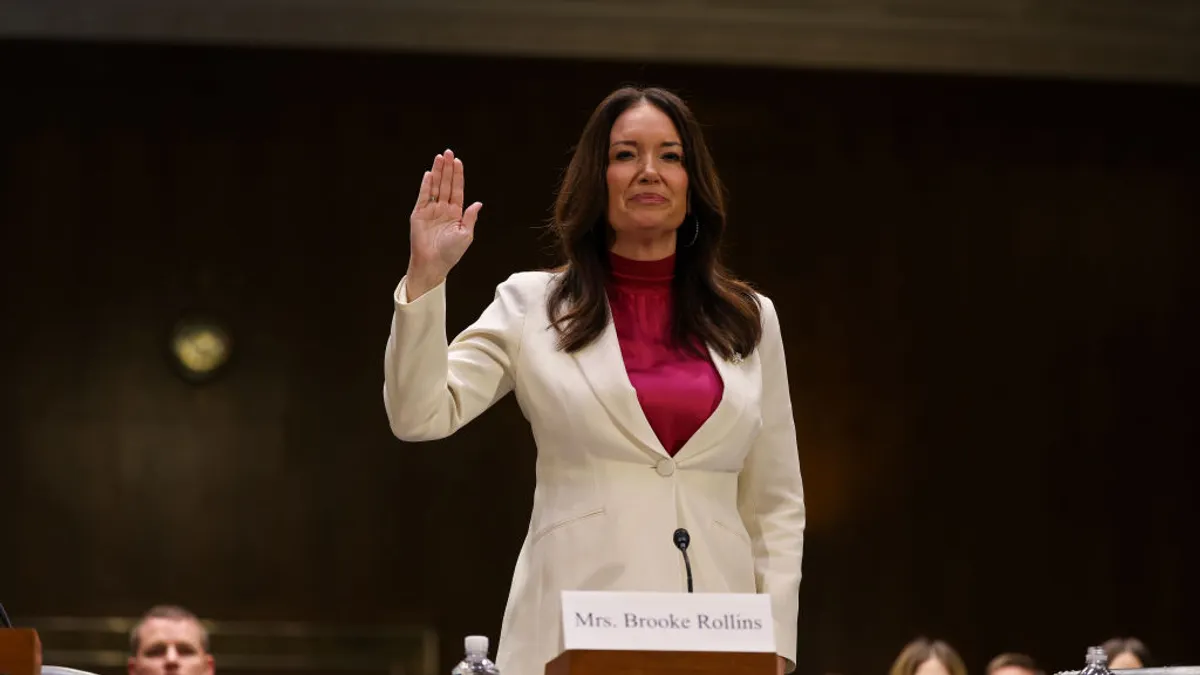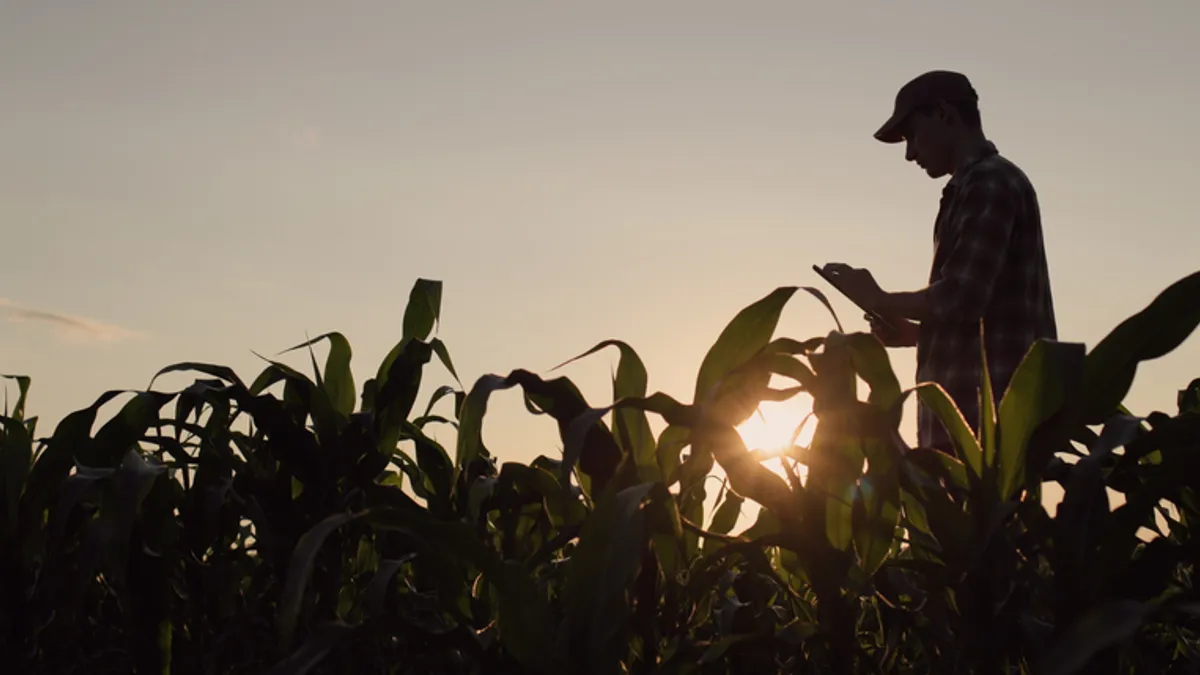In the midst of a scramble to keep the government funded, Congress quietly let the U.S.' largest farm spending package expire without a word on when a potential deal could be reached.
The farm bill manages hundreds of billions of dollars in commodity, nutrition, and conservation programs. Congress failed to pass the bill by the Sept. 30 deadline as negotiators fended off far-right demands to drastically cut money for food assistance and climate initiatives.
Unlike the effects of a government shutdown, farmers are unlikely to immediately notice any changes from a farm bill expiration. However, unless Congress is able to reach an agreement or a short-term funding extension before the end of the year, industries would face major disruptions that could cause an explosion in food prices for consumers.
Here's a quick look at what continues — and what won't — with the farm bill expiration.
Who's immediately impacted by an expired farm bill?
Certain initiatives under the U.S. Department of Agriculture’s flagship conservation programs are at immediate risk with the expiration of the farm bill.
The Inflation Reduction Act allows some provisions under the Conservation Stewardship Program and Environmental Quality Incentives Program to continue until Sept. 30, 2031. However, the Conservation Reserve Program, which pays farms to remove environmentally sensitive land from agriculture production and plant native species, has expired.
Certain provisions under the USDA's main conservation programs didn't receive an extension under the IRA, putting them at risk as well. Provisions around payment limits and livestock funding under the Environmental Quality Incentives Program no longer apply, according to the Congressional Research Service.
Agriculture leaders in Congress are hoping to pass the farm bill by December, but dysfunction in the House could require lawmakers to agree on a short-term extension of current legislation. Extending the farm bill, however, would bring its own headaches to programs that receive discretionary funding.
Unless Congress agrees to continue discretionary spending under the farm bill, programs like the Organic Certification Cost Share Program would be on the chopping block even in the event of an extension.
"Organic certification is no small feat. It involves careful planning, detailed record keeping, an annual inspection, and compliance with strict standards to improve soil health, sequester carbon, and protect natural resources,” said Abby Youngblood, executive director at the National Organic Coalition. “Some operations pay thousands of dollars every year to get certified. Without action on the part of Congress to fund the Organic Certification Cost Share Program, organic operations will take a big hit in 2024.”
Most programs set to continue
While the overall farm bill expired, many programs still have the authority to run for a few more months, if not years. And, unlike previous farm bills, new money under the Inflation Reduction Act also guarantees a variety of conservation programs will be funded until 2031.
The Supplemental Nutrition Assistance Program, formerly known as food stamps, will also be able to continue. Certain initiatives under SNAP, however, could be at risk without explicit appropriations, such as the employment and training program, said David Super, a Georgetown Law professor specializing in administrative and public welfare law.
For farmers, the real risk of a farm bill expiration comes at the end of their crop marketing year, which is different depending on the commodity produced. That's when commodity support programs, which ensure financial certainty and help reduce risk from market volatility and extreme weather, are set to end.
The dairy industry would be the first to see their commodity support program expire beginning Jan. 1, 2024. At that point, programs would revert back to what they were under the 1938 and 1949 farm bills, commonly known as permanent law.
Going back to permanent law would cause upheaval in commodity markets, push consumer prices exponentially higher and allow some producers to rake in government payments while others lose support entirely.
In the case of dairy, permanent law would require the USDA to pay 2.5 times the current market price of milk, which could upend commercial markets and raise the retail price of milk, according to a report from the Congressional Research Service.
Reverting back to permanent law would also require farm agencies to operate just as they did in 1938 and 1949, meaning no use of technology allowed. Roman Keeney, associate professor at Purdue University's Center for Food and Agricultural Business, said previous threats of a farm bill expiration had prompted one local farm service agency to prepare to collect data by hand.
"When signing up farmers for next year's marketing programs, they had to take their name, their acreage and tell them: 'We don't have the software yet,'" Keeney said.



















